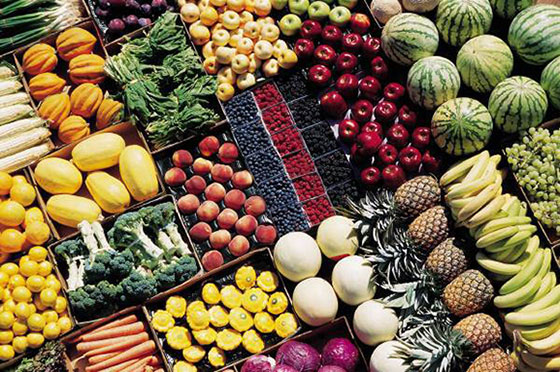How Federal Nutrition Programs Impact Latino Children and Families

There are 4.7 million Latino children living in families that struggle to consistently put food on the table. Latinos also face increased risk of developing a chronic disease like diabetes and heart disease. March marks National Nutrition Month, and it gives us an opportunity to highlight important federal efforts to address hunger, improve access to healthy and nutritious food, and increase the ability for America’s children and families to live healthier lives.
In particular, federal nutrition programs such as the Supplemental Nutrition Assistance Program (SNAP) and child nutrition programs, like school meals, are especially critical for the health and well-being of the Latino community. To help you better understand these federal programs, we’ve put together an update on them, as well as the impact these new developments could have on the health of families and communities around the country.
Keep up with the latest from UnidosUS
Sign up for the weekly UnidosUS Action Network newsletter delivered every Thursday.

Child nutrition programs
There are nine federal child nutrition programs, including the school meals programs, the Special Supplemental Nutrition Program for Women, Infants, and Children (WIC), and the Summer Food Service Program. These programs are important for children in families with limited access to healthy, nutritious food. Millions of Latino children depend on access to nutritious meals before school, at school, and during the summer months. This year, Congress has an opportunity to maintain and strengthen these nutrition programs that provide children with the energy they need to thrive in the classroom.
In January, the Senate Agriculture Committee voted unanimously to pass legislation to reauthorize these programs. The bill is currently pending consideration from the full Senate, and potentially a separate bill from the House of Representatives Education and Workforce Committee.
Meanwhile, the United States Department of Agriculture (USDA) recently announced a measure to improve access to WIC benefits for new mothers and their children. It will allow beneficiaries in all states to use an Electronic Benefit Transfer card, which works like a debit card, at stores that accept WIC. This change will better enable new mothers to provide healthy and nutritious food during this critical stage in their child’s life.

Supplemental Nutrition Assistance Program
In January 2016, the SNAP program provided 45.4 million low-income individuals, including nearly five million Latinos, with access to healthy, nutritious food. SNAP acts as the first line of defense against hunger for millions of children and families. Recent subtle, but important, changes to the program could impact SNAP’s delivery for many of these families, including a 20-hours-per-week work requirement.
Currently, after three months, able-bodied adults who are not working or enrolled in a job-training program for at least 20 hours a week can lose their benefits. In 2016, with the economy improving, that will change. An analysis by the Center on Budget and Policy Priorities showed that more than 500,000 and up to one million current beneficiaries could lose their benefits as a result of not meeting the work requirement. This year, 23 states will reimpose the three-month time limit, joining 17 states already doing so. Together, the 40 states imposing SNAP time limits will cover 65% of the U.S. population.
Earlier this month, the USDA announced the 10 states it has chosen to participate in its “SNAP to Skills” program to help people find jobs and help states provide greater access to job training programs that put people in position to succeed in the workforce.
Building healthier communities every day
Federal nutrition programs are extremely important for millions of Latinos and the communities they live in. While the economy is improving and unemployment statistics are trending in the right direction, many in our communities still do not have consistent access to affordable, nutritious meals. The child nutrition and SNAP programs play key roles in addressing these needs. We are working to ensure that America’s children and their families have access to the tools they need to live a healthy life. National Nutrition Month provides a platform to reinforce the unique role federal nutrition programs play in improving the health and well-being of our families and our country.


